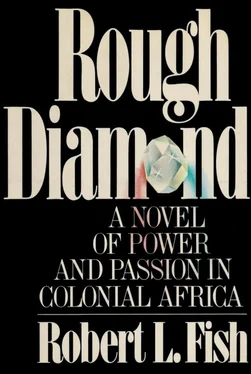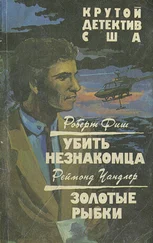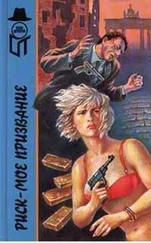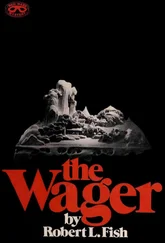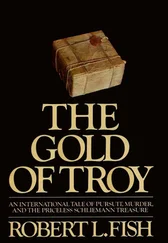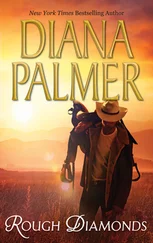Scholtz, for one, knew it could mean a’ fortune for whoever gained the concession for the chemical, whatever it was, that was essential to the new process, but he also knew that Kruger’s question had been rhetorical. Scholtz, therefore, properly kept his silence. Contrary to the thoughts of many, Scholtz was no fool.
“It will mean the influx of thousands upon thousands of diggers, Uitlanders , outsiders, foreigners, strangers!” Kruger said heavily. His big hands gripped the edge of the large chair. “Most of them will be English, with a few Americans. It will mean all the people who left in the last few years will be coming back to the Transvaal, bringing with them all their vices, their filth, their gambling, their whores—” He paused without mentioning their bars and their liquors, and took a sip of his brandy-laced tea, wiping his lips afterward on the back of his large hand, as if to punctuate his statement.
“I don’t think so,” Enslin said slowly.
Kruger’s bushy eyebrows rose dramatically. “You don’t think so? With more gold in sight? You don’t think they’ll come flocking in like vultures over a dead bokram?”
Enslin shook his head. “No, sir. The diggings have changed, Meneer President. The small digger, the individual miner, no longer has the force, the financial strength, to become involved in the mining of gold. It is now in the hands of the big companies, the corporations, the stock companies, a lot of them with Kimberley money, and there is no longer room for the digger the way there was when they dug the outcropped tailings and washed them in a rocker pan. It’s a different business, and will be even more different with the new process. Now they will use mostly Kaffir labor. I do not see any great increase of the Johannesburg population, at least not of English. Of Kaffirs, yes, but I am sure the whites will keep them under the same strict control they use in the diamond fields.”
“But this new process does not require skilled labor? White labor?”
Another man spoke up, Theunis Leyds, a farmer from just outside Johannesburg, a man who provided many of the fresh vegetables the city used, and therefore made frequent trips there.
“I do not believe so,” he said. “I think Kaspar is right.” He spoke slowly, as he did all things slowly, as if after a considerable amount of thought, although this was not always the case, as Kruger well knew. Leyds puffed on his pipe a moment, as if considering his words, and then removed it from his thin lips to continue. “They are building compounds at all the mines for the blacks as they did in Kimberley, for while the gold is more difficult to steal than the diamonds were, apparently with this new process it is not impossible. And they are saying that while the chemical fumes are bad for white men, and the chemicals burn the skin, this is not true for the Kaffirs, that the chemicals have no effect on the skin or lungs of the blacks. So it will be the Kaffirs, in the main, who will handle the chemicals in the new process, I imagine.”
It was a long speech for Leyds, and for once it made sense to Kruger. The President smiled, a humorless smile.
“How like the English! They are the ultimate hypocrites. I remember as a child — they sold us the slaves and then came around saying the slaves were free — after taking our money. Slaves, incidentally, we treated well, considering the admonitions of the Bible against all the sons of Ham, condemning them to be servants for all their lives and the lives of all the generations to follow. And then they lock the blacks in compounds, feed them worse than animals, treat them worse than even the Matabele treated their captives, and now they are going to poison them, as well!”
“We might pass a law forbidding it.” The man who spoke allowed his thoughts to trail to silence. It was the Reverend Karl Hofmeyr, the pastor of the Dutch Reformed Church in Pretoria.
Kruger waved the notion away; he was sure the reverend felt the same on the subject as he did; how could he feel otherwise in view of the strictures of the Good Book?
“I care not what the English do with their Kaffirs. Let them starve them, poison them, do what they will with them. The English are fools; when they finish exploiting the black, they send him home with a gun in his hands. Someday they will face those guns. No, what happens to the Kaffirs is out of our hands; what happens to the English is what interests me.” He turned to look at Andries Pirow, who had been sitting silently during the discussion. “You, my old friend, are much in touch with these English. Do you agree with Kaspar and Leyds? Do you think the English will increase in number because of this new process, whatever it is?”
Andries Pirow paused before replying, thinking. At last he shrugged and spoke. In Afrikaans he was much more articulate than he had ever been in English.
“My President, I think the two who spoke before are wrong. I think the English will increase. Not just because of the gold, but because with the gold, Johannesburg is bound to grow, and they will come for the commerce. Johannesburg is already a growing city; it will grow faster. Men will come to build more buildings, to build houses, others to make bricks for those houses, and to dig the clay for those bricks. Others to build roads to reach the houses. Others to bake the bread these people will need, or weave the cloth for their clothes. I saw it happen in Durban, where there was no gold; I saw it happen in Bloemfontein, where there were only farms. It is the way of the world.”
“And the newcomers will be Uitlanders,” Hendryk Rensburg said sourly.
“I agree with both Hendryk and Andries,” Jan Snijman said. He was a trader who traveled widely in the Republic. “It isn’t even a question of will they come, my President; they are coming. I see them every day. And not just to Johannesburg, which — as Andries quite correctly says — will grow because of the gold. They are coming to Springs and places like it, where the coal is, because they need the coal for the gold mines. One thing leads to another. No,” he added with a shake of his head, “they will come. They are coming. Kaspar and Theunis are wrong; the new process will merely make them come faster.”
“I agree,” said Herman Shoemann, the eighth of the group, a successful farmer from Roodepoort on the far side of Johannesburg and one well familiar with the problem because of his proximity to that city. “In a few years the English will outnumber the Boers in our own republic if they don’t already. And they will start to want the vote, the franchise; they already want it and they do not want to wait fourteen years as residents to get it, as the law is now. I hear talk of the franchise every time I go to Johannesburg! And then where will we be? Back on another Great Trek?”
There was the sudden sound of Kruger’s big hand smashing down on the table beside him. His tea sloshed, almost spilling. The short beard that edged his large angry face was bristling with rage.
“No!” Kruger said in a thundering voice. “There will be no more Great Treks! Not if they depend on the Uitlander getting the vote, except as the law allows. This is still our land, our republic, our country! We fought for it, against the Matabele, against the English, and we won it! Have they so soon forgotten eighteen-eighty and eighteen-eighty-one? Have they forgotten Laing’s Nek? Have they forgotten Majuba Hill? How many English dead do they need to convince them that this is our land and we run it as we wish, not as they wish? Do these vermin think they can just walk in and take it away from us with the franchise, just like that? The Volksraad still controls and rules this state, and the Volksraad will never consent to the Uitlander having the vote except under the conditions that were established at the Treaty of Pretoria, not as long as I am President! Nor, I am sure,” he added in a more subdued tone of voice, “long after I am no longer President.”
Читать дальше
